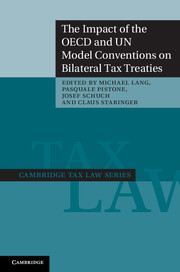Book contents
- Frontmatter
- Contents
- Contributors
- Preface
- Table of cases
- Table of statutes
- General report
- 1 Argentina
- 2 Australia
- 3 Austria
- 4 Belgium
- 5 Brazil
- 6 Canada
- 7 Chile
- 8 China
- 9 Colombia
- 10 Croatia
- 11 The Czech Republic
- 12 Estonia
- 13 Finland
- 14 France
- 15 Germany
- 16 Hong Kong
- 17 Hungary
- 18 India
- 19 Italy
- 20 Lebanon
- 21 Liechtenstein
- 22 The Netherlands
- 23 New Zealand
- 24 Norway
- 25 Peru
- 26 Poland
- 27 Portugal
- 28 Romania
- 29 The Russian Federation
- 30 Serbia
- 31 Slovakia
- 32 Slovenia
- 33 Spain
- 34 Sweden
- 35 Uganda
- 36 The UK
- 37 The USA
- Index
- References
27 - Portugal
Published online by Cambridge University Press: 05 November 2014
- Frontmatter
- Contents
- Contributors
- Preface
- Table of cases
- Table of statutes
- General report
- 1 Argentina
- 2 Australia
- 3 Austria
- 4 Belgium
- 5 Brazil
- 6 Canada
- 7 Chile
- 8 China
- 9 Colombia
- 10 Croatia
- 11 The Czech Republic
- 12 Estonia
- 13 Finland
- 14 France
- 15 Germany
- 16 Hong Kong
- 17 Hungary
- 18 India
- 19 Italy
- 20 Lebanon
- 21 Liechtenstein
- 22 The Netherlands
- 23 New Zealand
- 24 Norway
- 25 Peru
- 26 Poland
- 27 Portugal
- 28 Romania
- 29 The Russian Federation
- 30 Serbia
- 31 Slovakia
- 32 Slovenia
- 33 Spain
- 34 Sweden
- 35 Uganda
- 36 The UK
- 37 The USA
- Index
- References
Summary
The relevance of the OECD and the UN Model Conventions and their Commentaries for the interpretation of Portuguese tax treaties
Sometimes a careful reproduction, other times no more than a confused copy. The way in which Portuguese tax treaties effectively follow the OECD Model Tax Convention on Income and on Capital (OECD Model) and the United Nations Model Double Taxation Convention between Developed and Developing Countries (UN Model) is not uniform and has changed noticeably during the last decades.
Accessing comprehensively the full impact of both the OECD and the UN Models on the Portuguese treaty network is certainly not an easy task: first of all, because of the large timeframe that we have to work with; even restricting the analysis to the conventions currently in force, we have to deal with treaties signed over a forty-year period; second, because of the dimension of that network, which includes fifty-two treaties currently in force; third, because the position assumed in negotiations is quite polymorphic – early treaties were based on an understanding of Portugal as a capital importer, a position that has also received expression in several reservations and observations – this position, however, has changed over the last decade. Portuguese treaty negotiations became more pragmatic and even those early reservations and observations began to be taken into consideration on a case-by-case basis; fourth, because no documents of the negotiations are available to the public and there are no explanations concerning the solutions enshrined in the existing treaties.
- Type
- Chapter
- Information
- Publisher: Cambridge University PressPrint publication year: 2012

